Corsley House, a handsome ashlar stone building set in wooded land below Cley Hill in rural Wiltshire, had its origins as a Jacobean farmhouse.
Just as its Georgian and Victorian additions lend the house character and individuality, so the recent development of its garden, under the ownership of American anglophiles Keith Johnson and Glen Senk, has created an exciting series of spaces that connect to the landscape and celebrate the joy of gardening with nature.
When the couple bought the property in 2018, they found a garden that had been loved in earlier times, with elements they definitely wanted to keep: majestic trees (including copper beech, cedars and an Indian bean tree), yew hedging, topiary, a huge walled garden and several historic structures and outbuildings including a grain store, threshing barn, potting shed, apple store and greenhouse overrun with vines. With the arrival of head gardener Jo Downes, an experienced horticulturist and committed environmental scientist, their English gardening journey began.
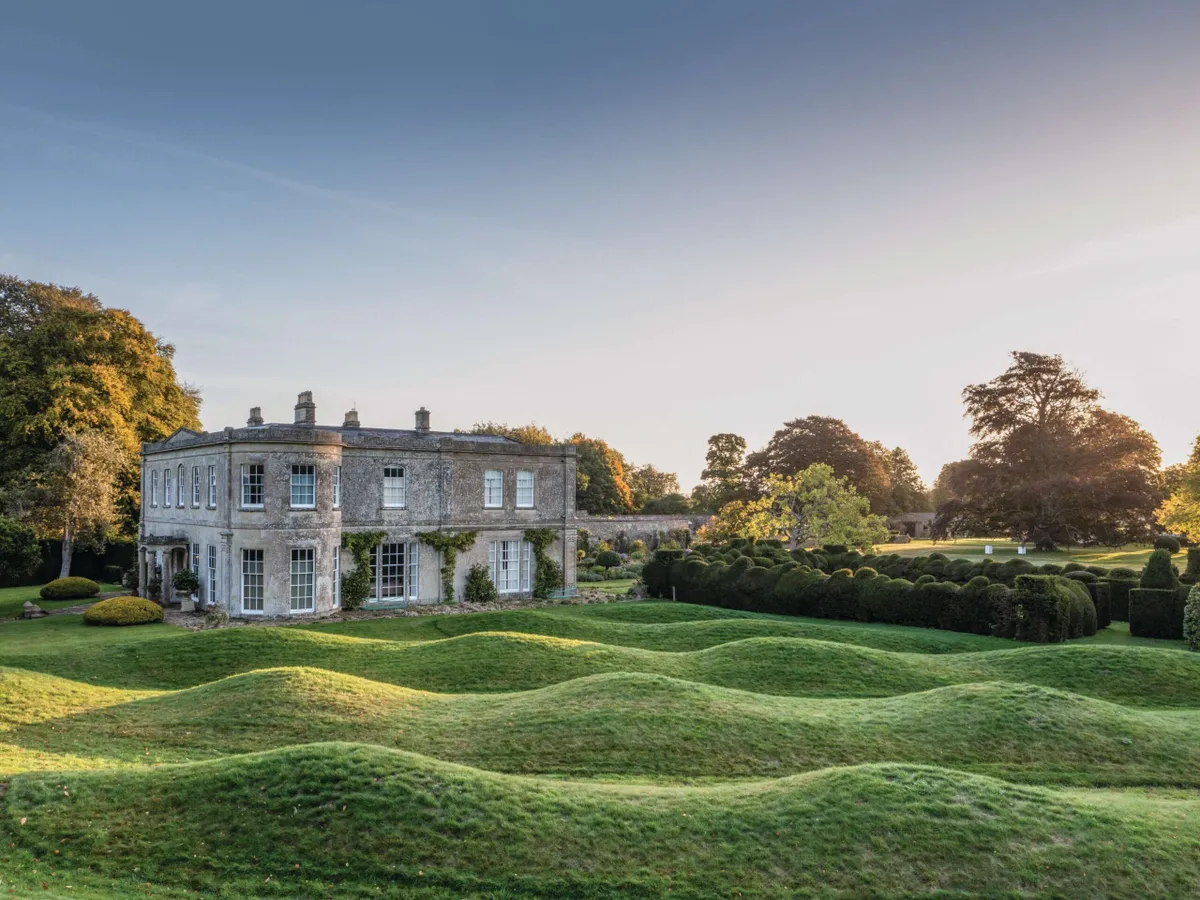
The area that has seen most changes is the Walled Garden, a formerly neglected productive garden with high walls on two sides, a low wall overlooking the wildflower meadow and a hedge on the fourth side. Jo was given free rein here, and it has now become Keith and Glen’s favourite place.
KEY ELEMENTS
What A relaxed and biodiverse garden, which has recently been brought back to life and now sits comfortably in its rural setting.
Where Wiltshire.
Size Approximately 15 acres.
Soil Free-draining greensand, improved with tonnes of organic matter.
Climate Mild.
Hardiness zone USDA 9.
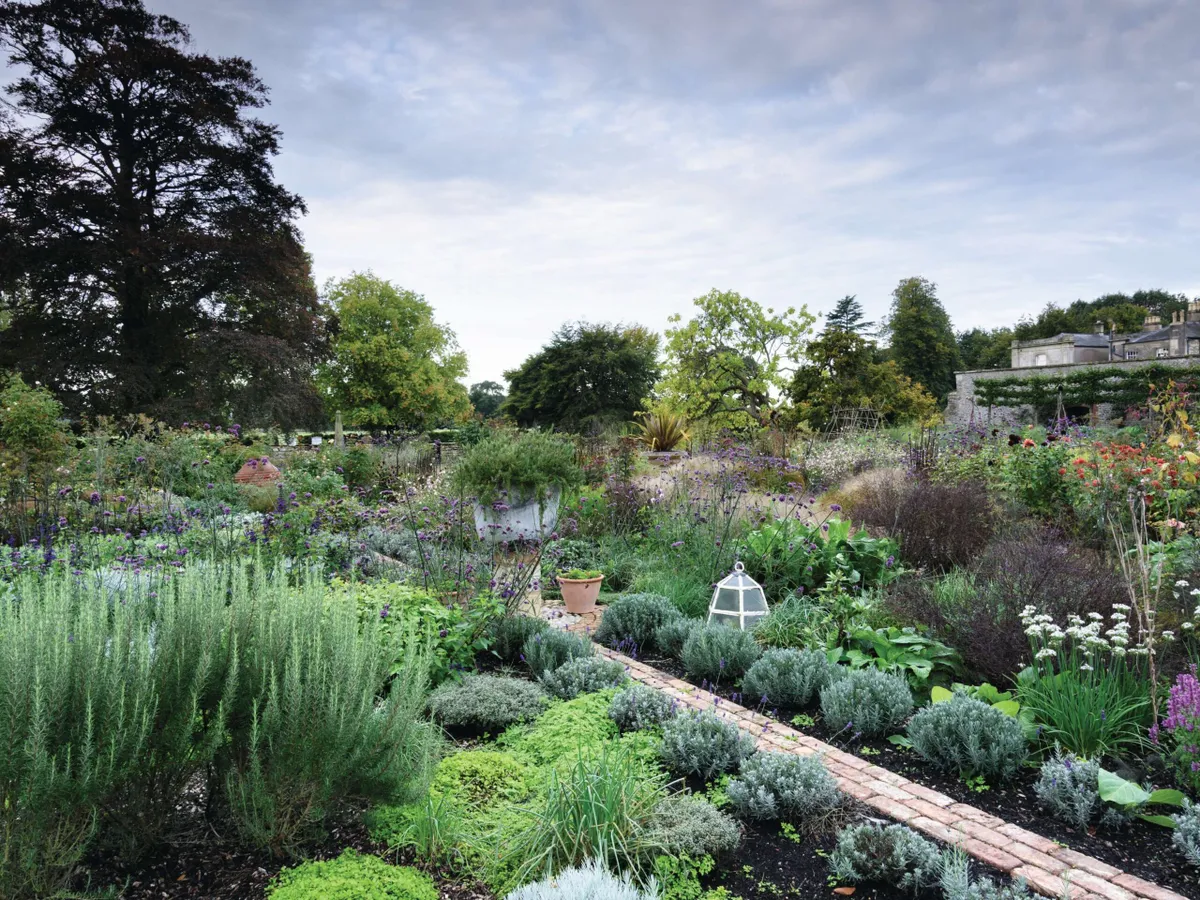
The Walled Garden, which you enter from the threshing barn on one side and the potting shed on the other, has been revitalised with head gardener Jo Downes’s design. It features eight sections, separated by brick and gravel paths, for productive fruit, vegetables and herbs such as rosemary ‘Miss Jessopp’s Upright’, and flowers for cutting. A repurposed wash tub, found in the potting shed and now filled with prostrate rosemary, forms the centrepiece of the herb garden.

The undulating landform, a series of wave-like peaks and troughs, was Keith’s brainchild. It took two attempts to achieve the beautiful close-cut sward of each wave. When the carefully raked banks, which were made to uniform heights by using a series of string lines, were initially sprayed with grass seed, much of it was washed away by torrential rain. A subsequent period of drought dried off the tops of each mound, and weeds took hold. Random daffodils, moved around by the earth sculpting, also popped up. The seeding had to be repeated, and this time, the growth was successful. The grass is kept short with regular mowing. “At dawn and dusk you get amazing shadows across the waves,” says head gardener Jo, “and it looks spectacular in winter dusted with frost.”
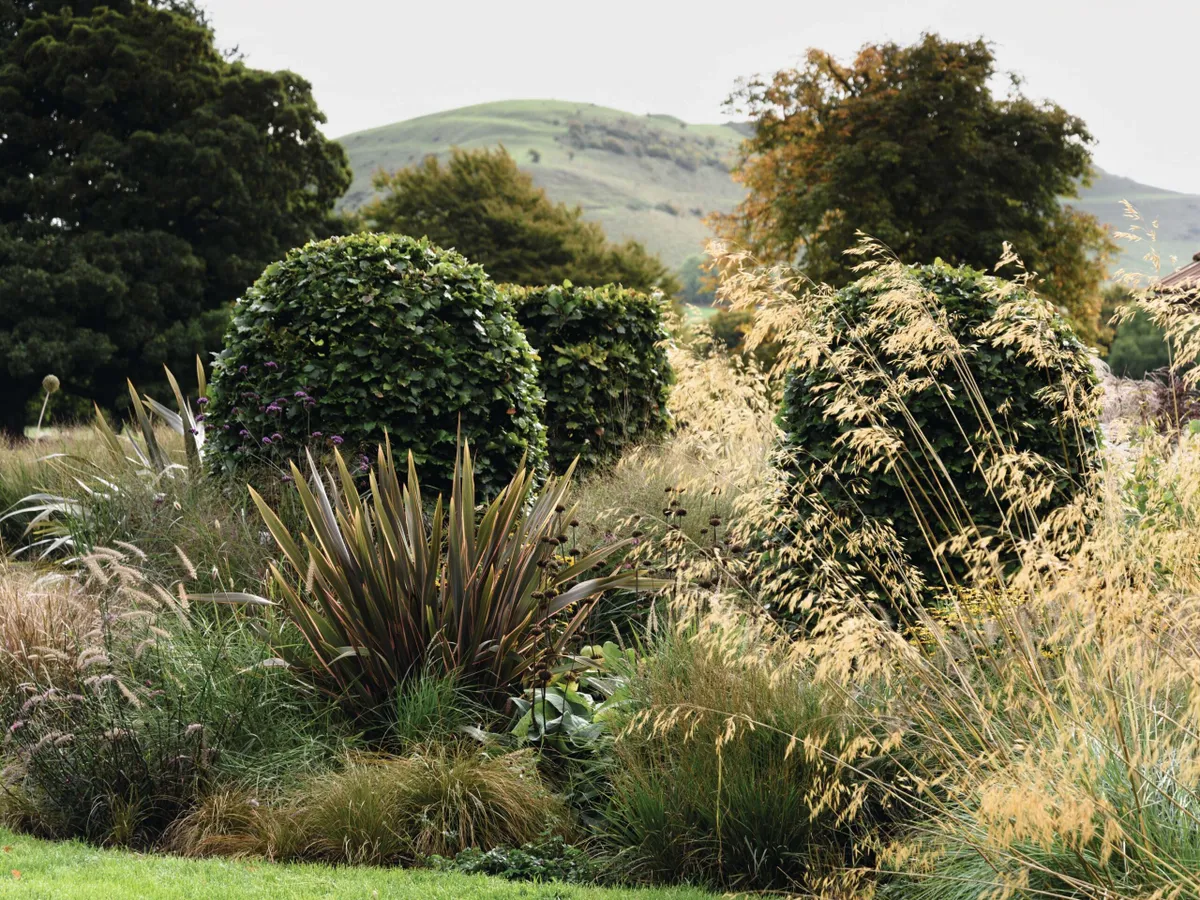
Three topiary beech anchor the plants in the recently planted grasses bed. Grasses such as Stipa gigantea and Panicum virgatum ‘Heavy Metal’ are mixed with Allium ‘Summer Drummer’, Persicaria and Dianthus for months of interest.
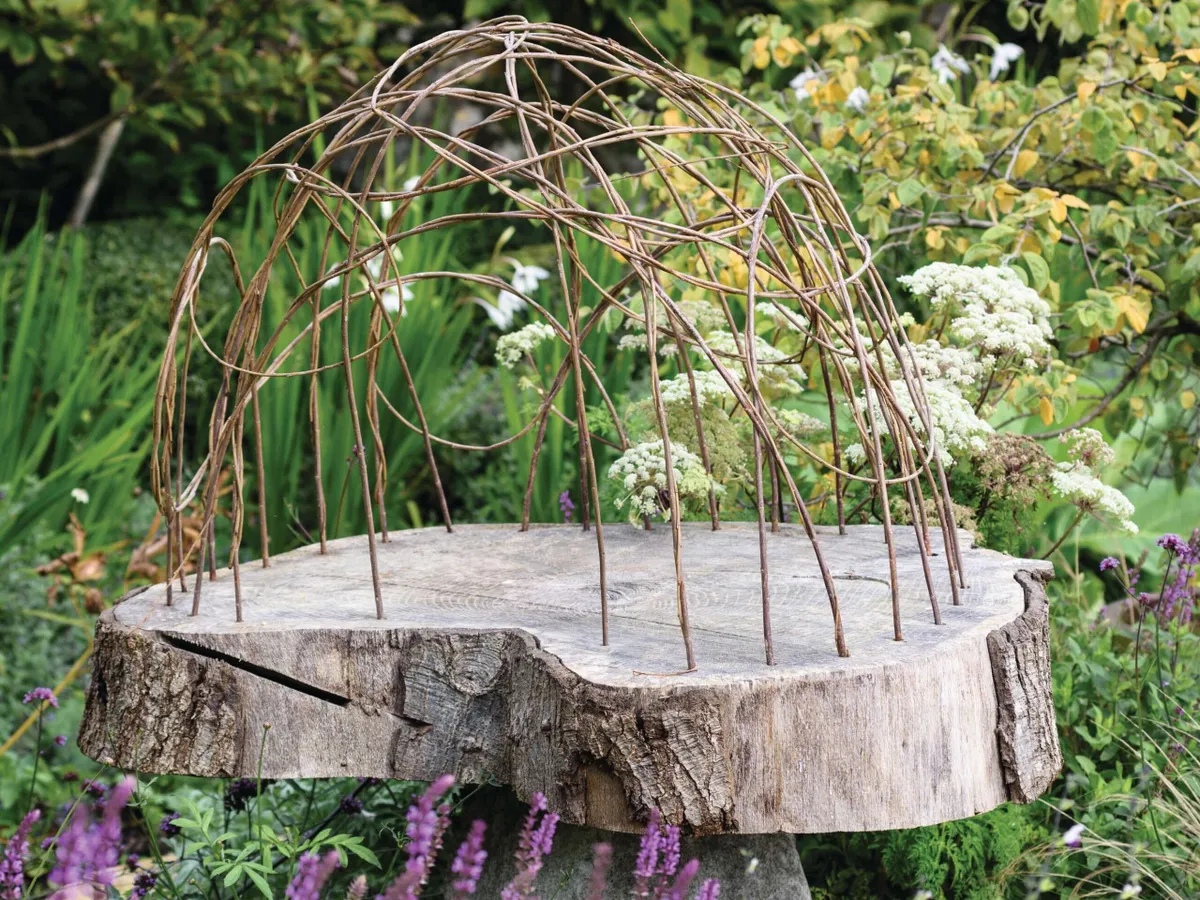
Keith mixes sculptural pieces acquired in antique sales and reclamation yards with materials and objects found on the land. This woven willow sculpture by Sarah Clarke, one of Corsley House’s three part-time gardeners, is fixed into timber from a fallen tree.
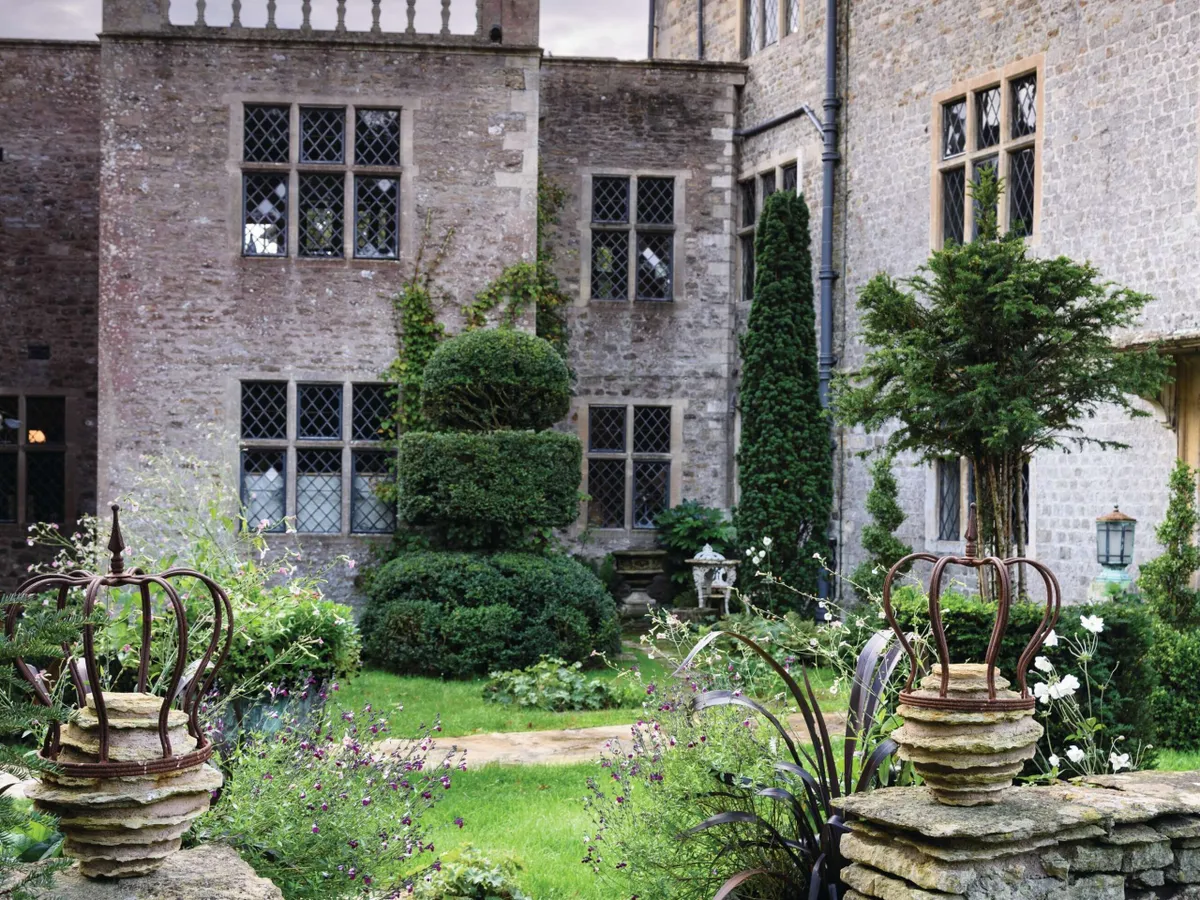
The wedding-cake yew topiary and box topiary shapes were planted to create a formal garden on the north side of the house. The finials, unearthed elsewhere in the garden, were reinstated on the low stone wall, as seen in an old photo.
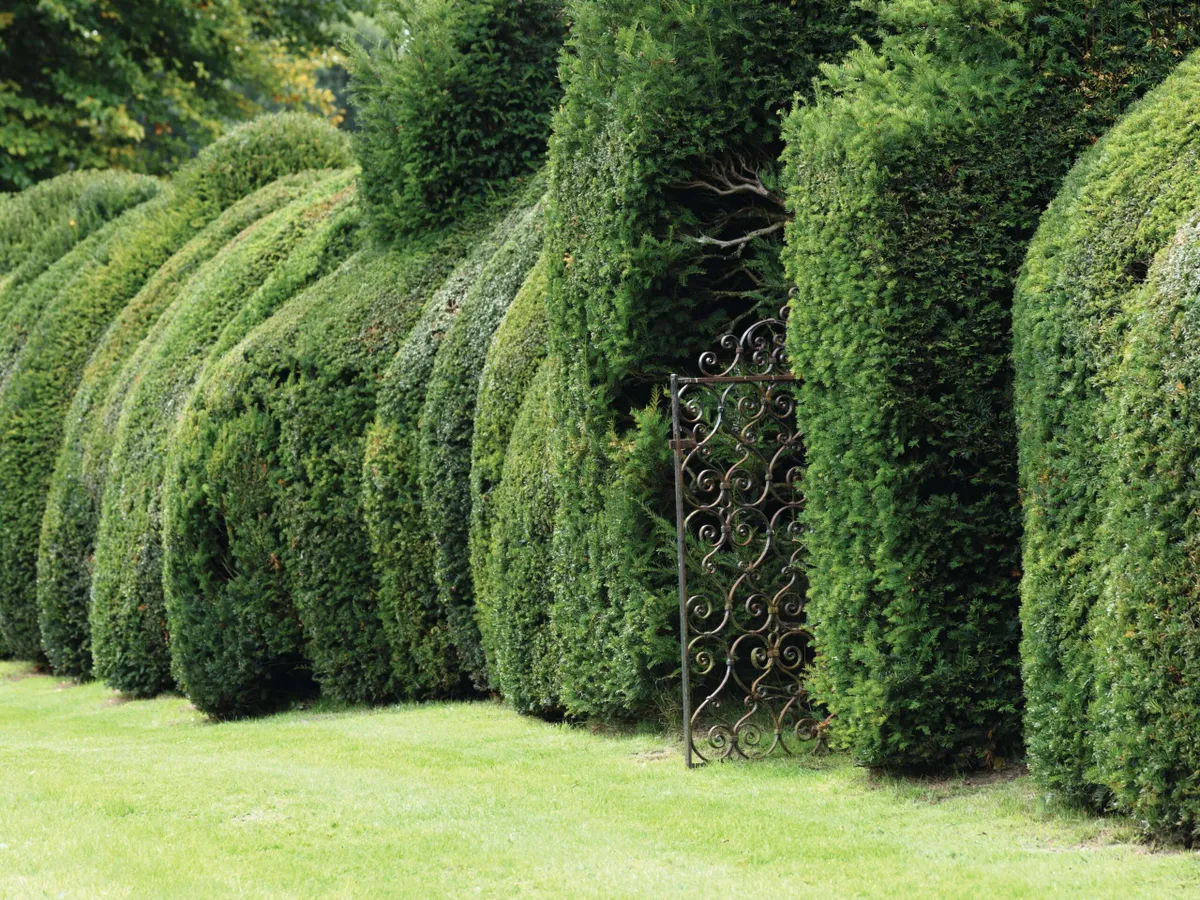
The towering yew hedge has been gradually reshaped as a cloud hedge. The taller sections on either side of the gate will eventually be pruned as horses’ heads, to celebrate Glen’s show-jumping days.
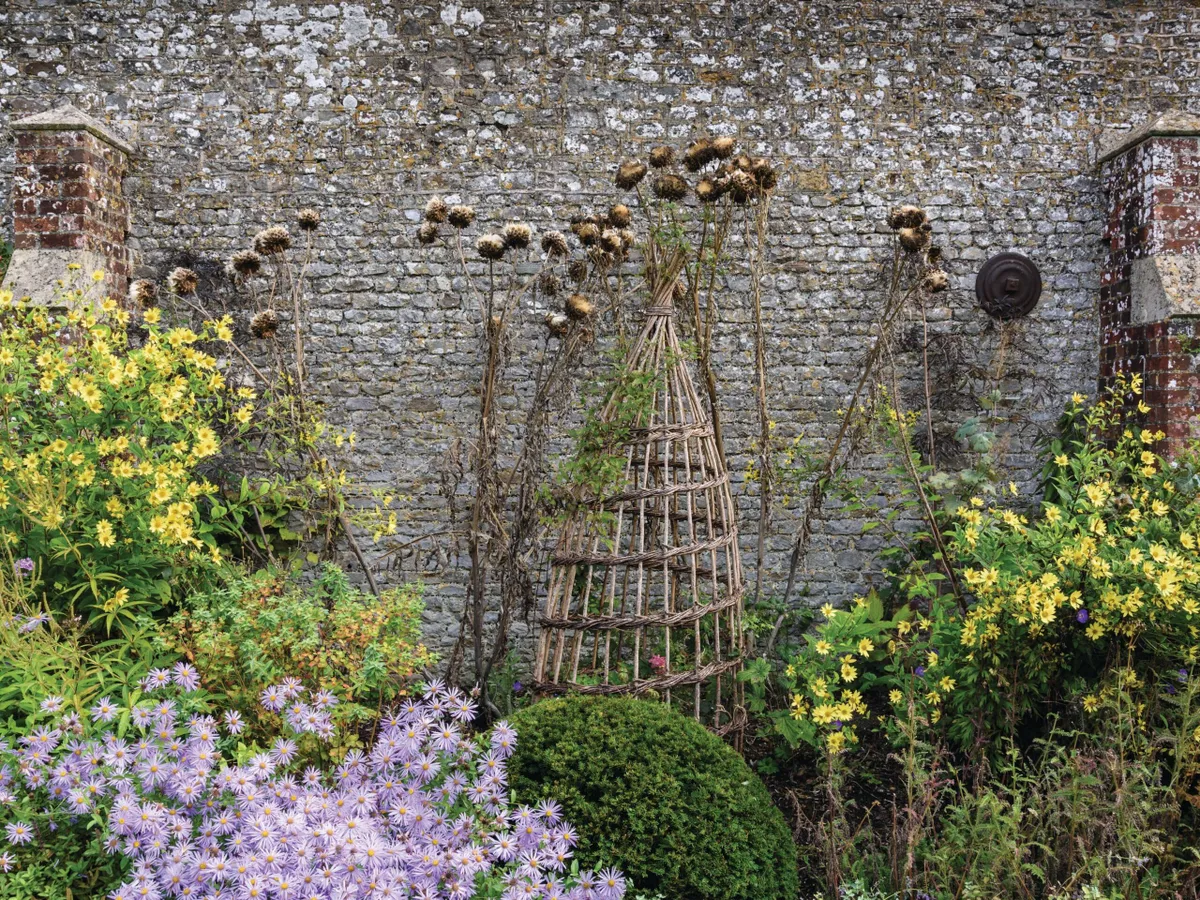
Cardoons in the long border on the outer wall of the Walled Garden are left standing for their architectural seedheads, as are most of the perennials in the garden. Aster x frikartii ‘Mönch’, Helianthus ‘Lemon Queen’, Salvia nemorosa ‘Caradonna’ and Agastache ‘Blue Fortune’ attract beneficial insects.
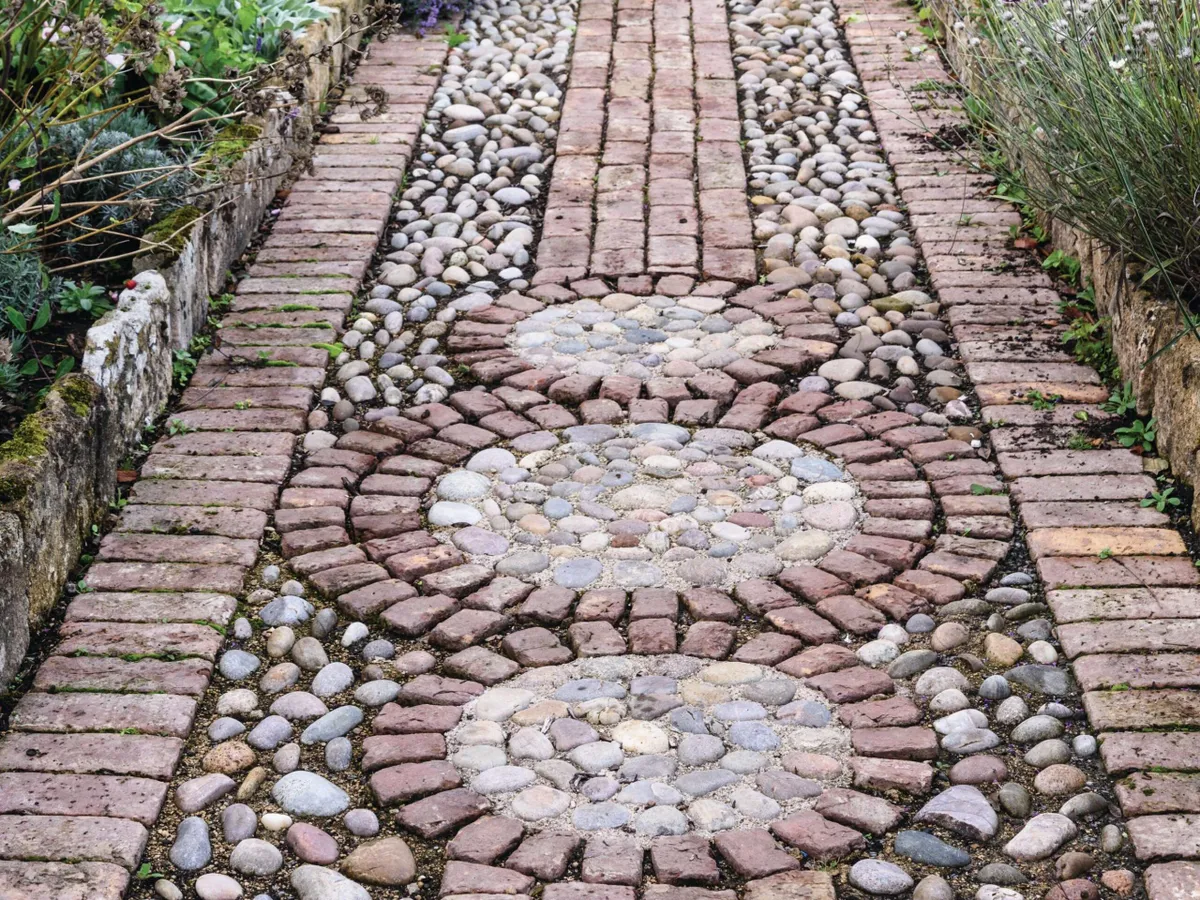
The cobblestone and brick path in the Walled Garden features a circular motif repeated throughout the garden. This entrance to the Walled Garden has been filled with a dry-stone wall. “We have many walls with bricked-in doorways suggesting another time and purpose,” says Keith. “This lends a bit of mystery.”
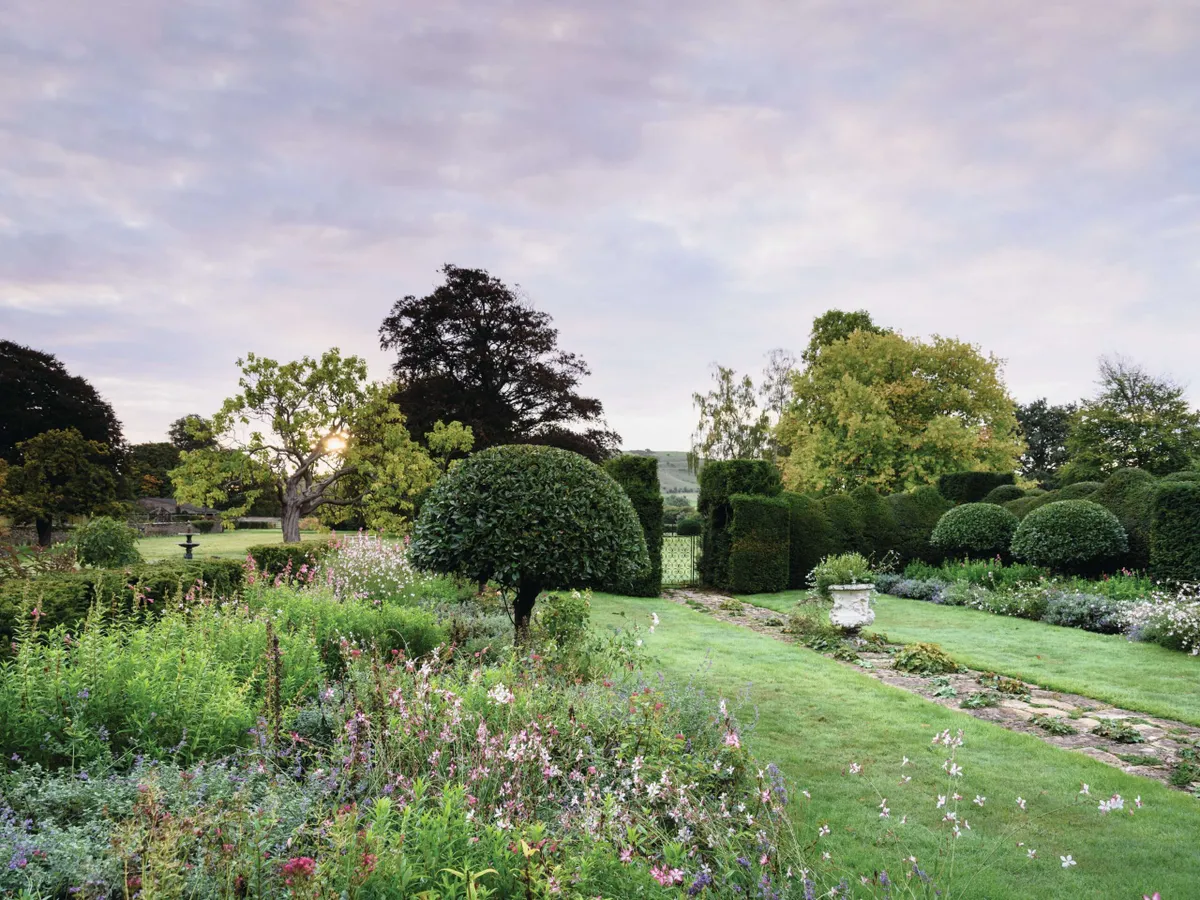
The Jubilee Garden was replanted in 2021 and features lollipop bay trees underplanted with a selection of drought-tolerant plants, including Oenothera lindheimeri ‘Whirling Butterflies’, Centranthus ruber and Nepeta racemosa ‘Walker’s Low’.
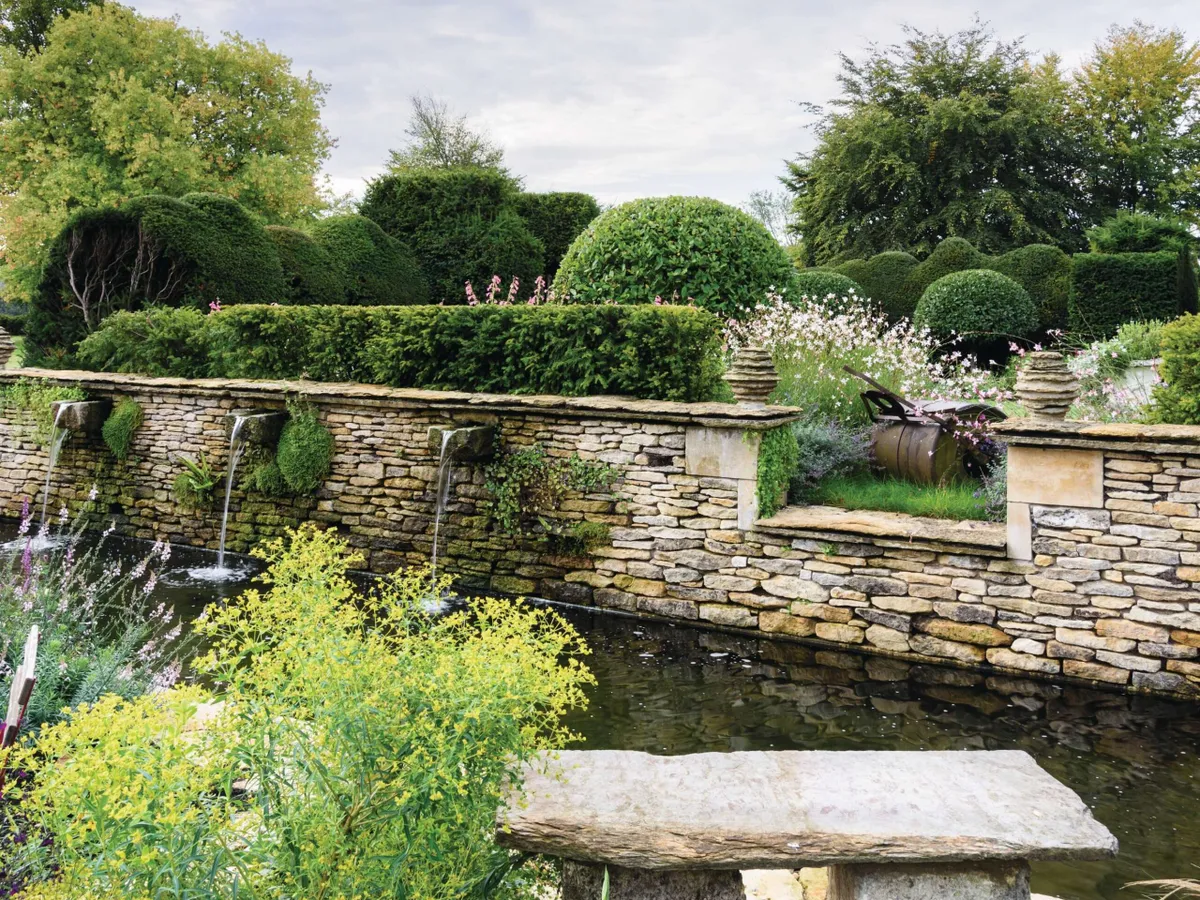
A new water feature was added, with spouts that create a constant sound of falling water. Euphorbia palustris and other plants, including Verbena officinalis ‘Bampton’, are encouraged to self-seed in the gaps between the paving stones.
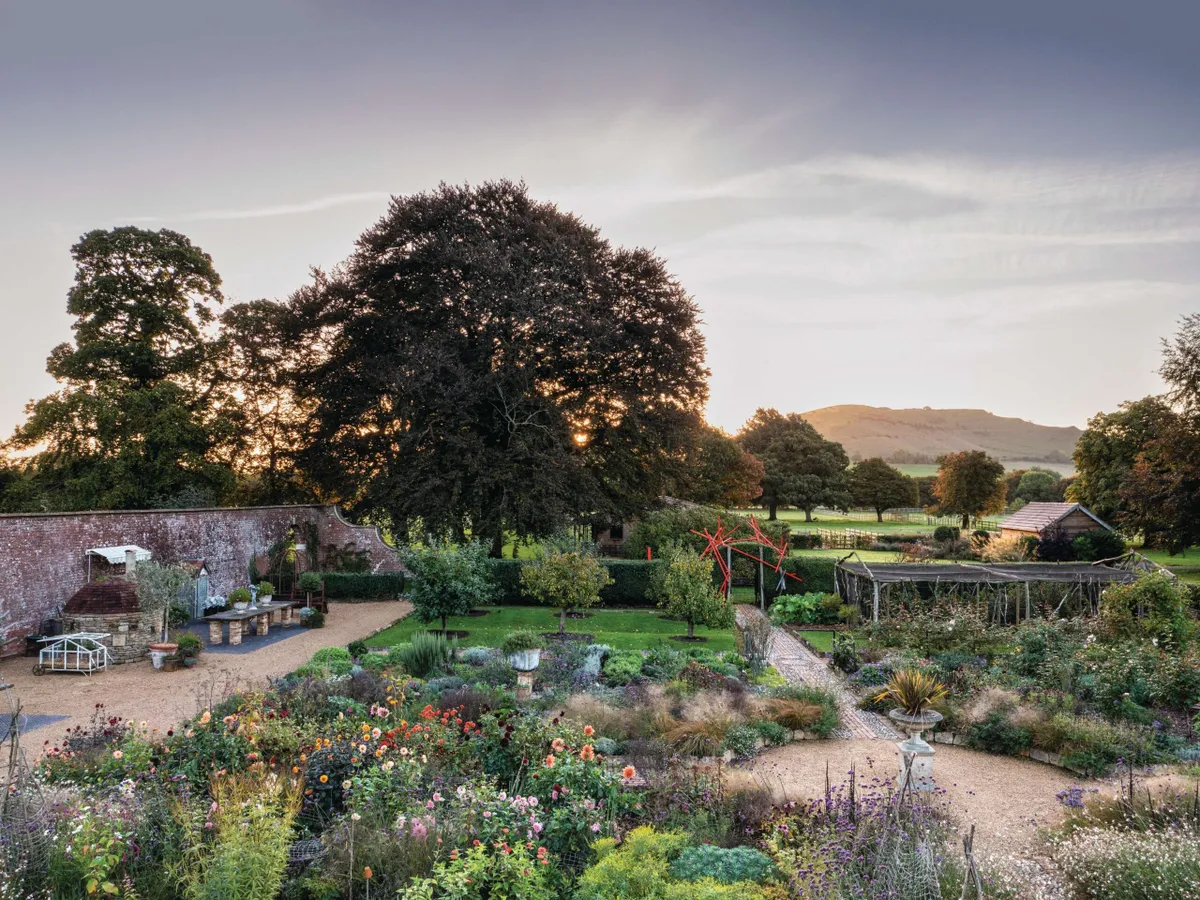
Three rows of dahlias, in shades of claret, apricot and peach, are grown in the cutting garden and are protected with a deep mulch in winter. They include Dahlia ‘Chat Noir’, ‘Penhill Watermelon’, ‘Totally Tangerine’ and ‘Café au Lait’. The striking red structure was designed by Keith along with Jackson Woodcock of Cricket Landscaping.
Key plants at Corsley House
Dahlia ‘Zundert Mystery Fox’
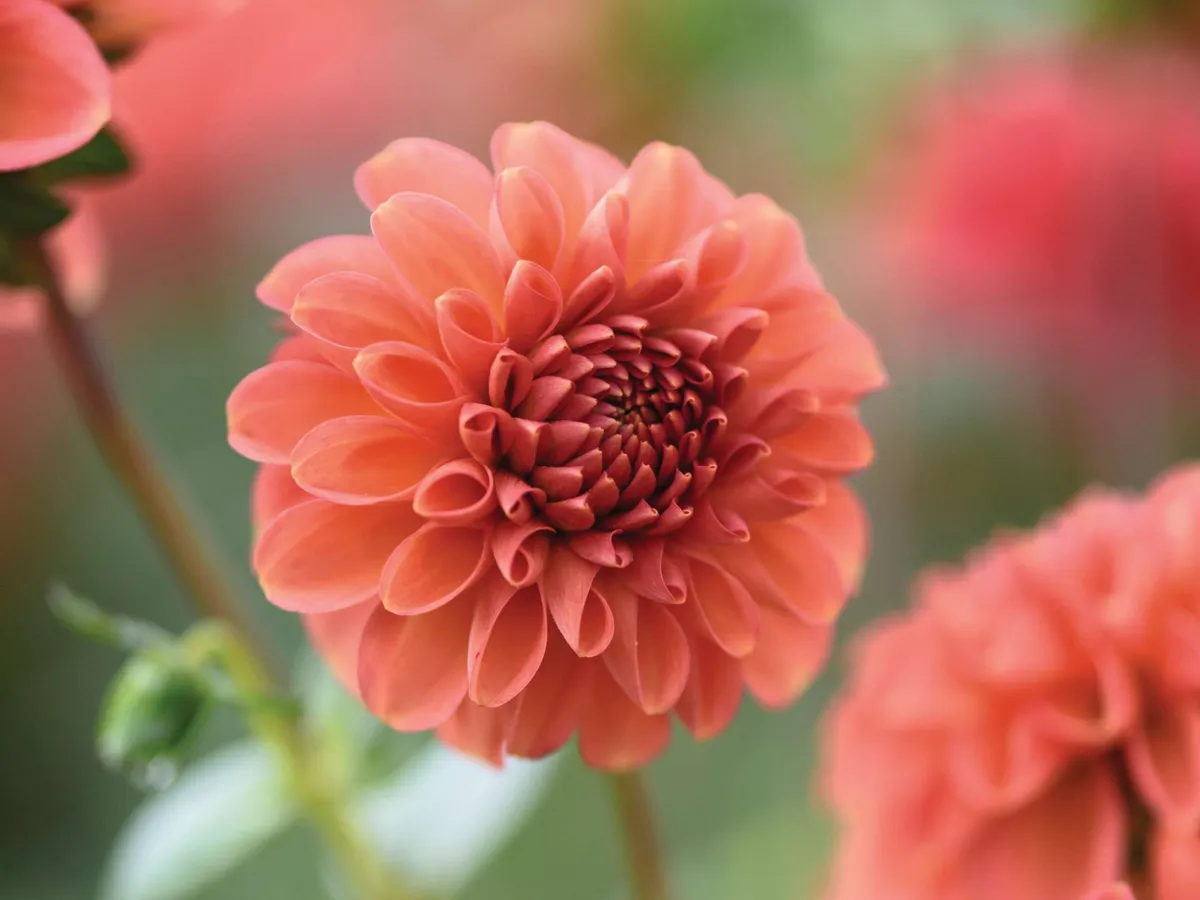
Profuse flowers fading from orange to terracotta as they mature. Height and spread: 90cm x 75cm.
Phlomoides tuberosa ‘Amazone’
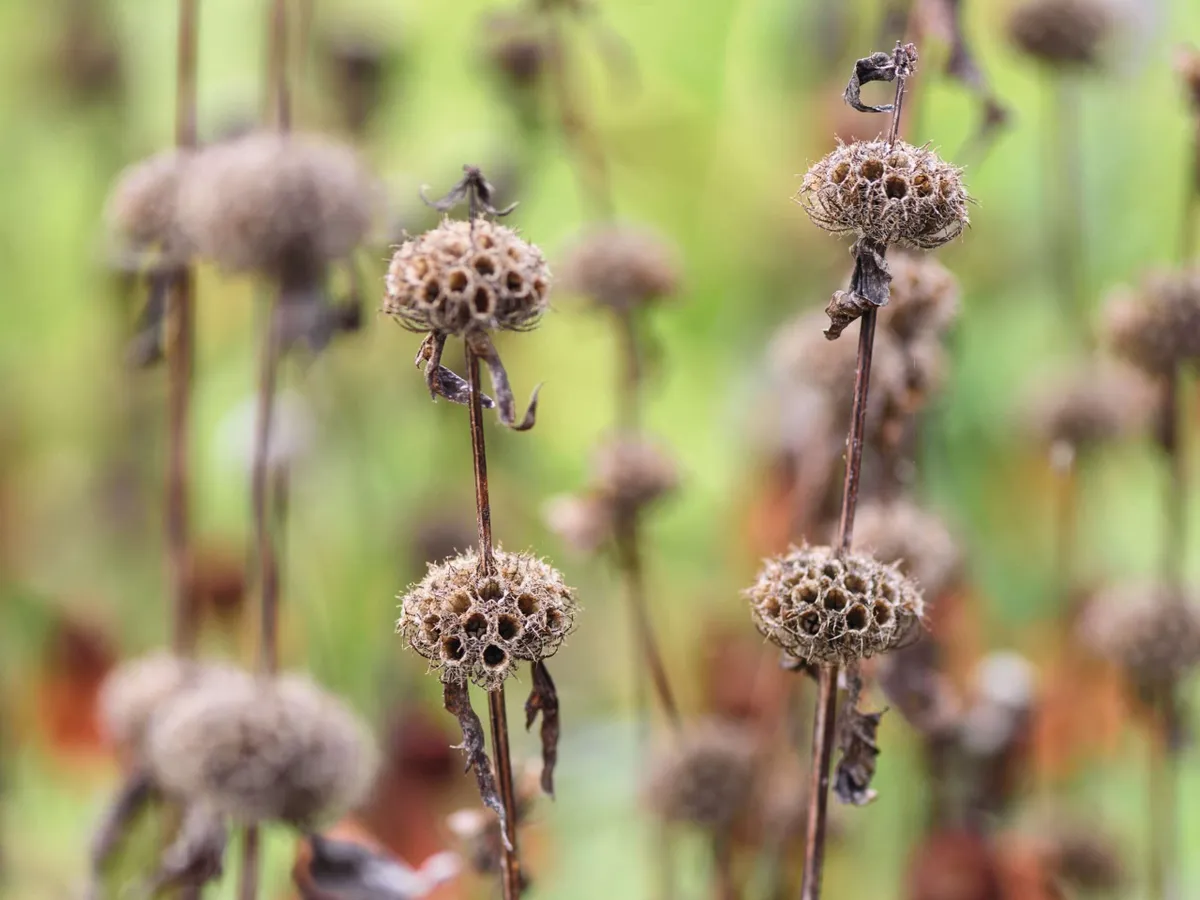
Tall stems bear lilac flowers in July and August, followed by robust seedheads. 1.2m x 90cm.
Brassica oleracea ‘Redbor’
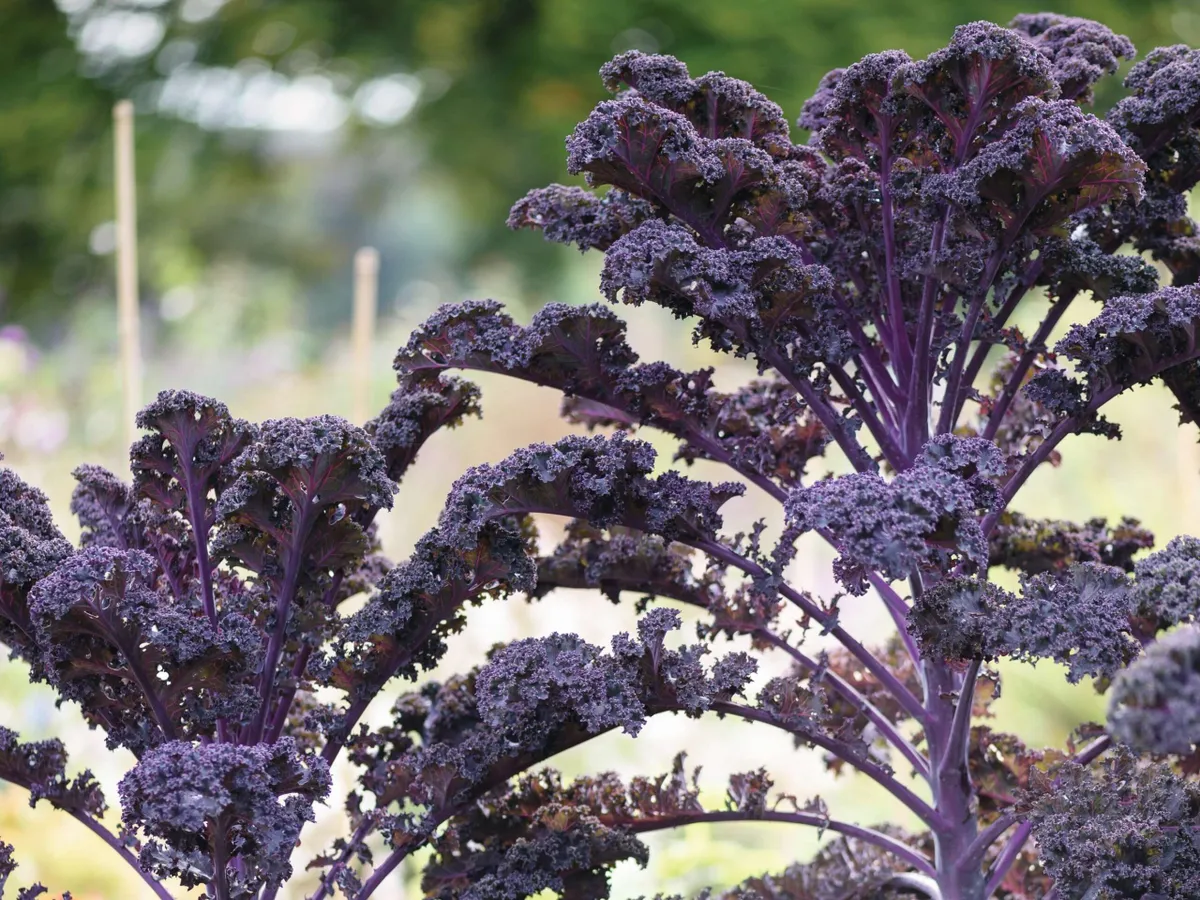
Great tasting kale giving colour and structure to the kitchen garden. 1.2m x 60cm.
Catanache caerulea ‘Alba’
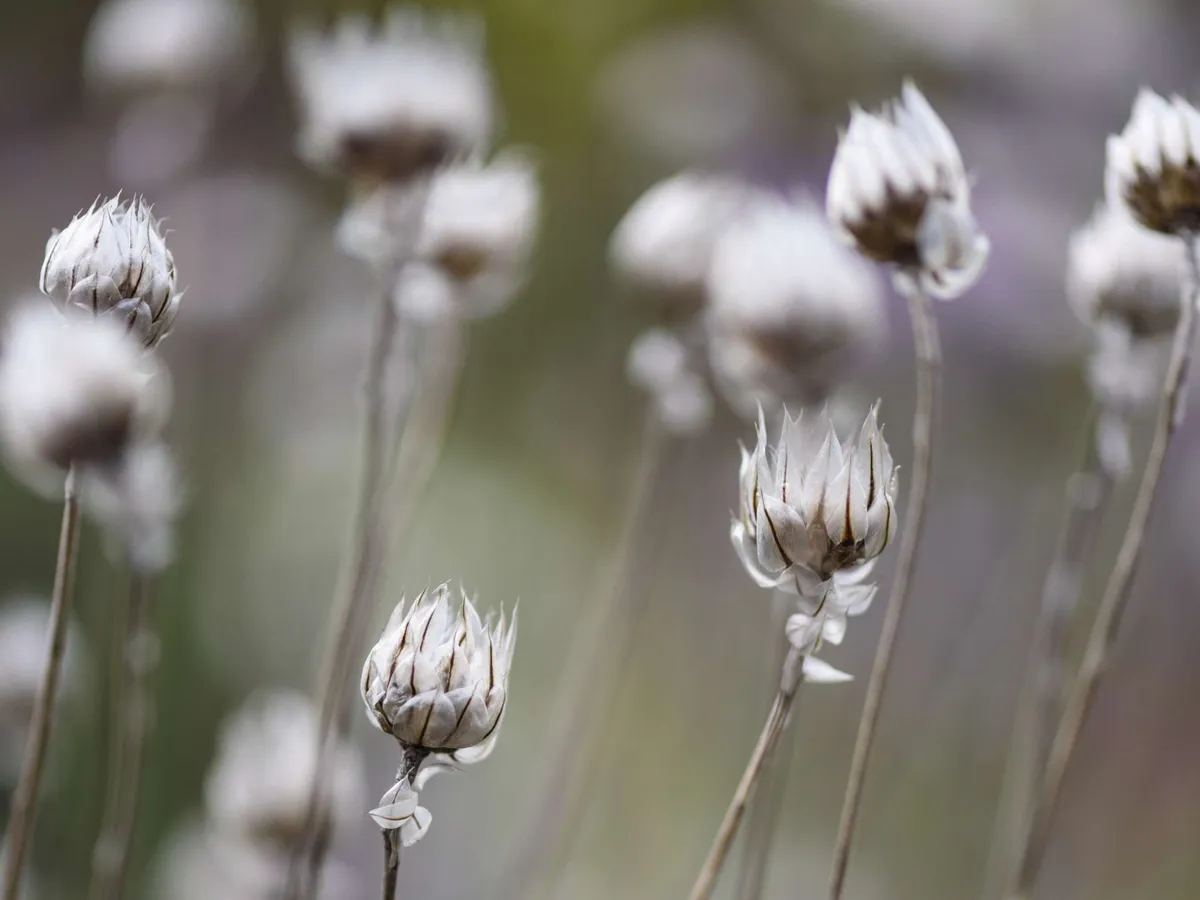
White, papery petals with jagged edges and a violet centre from June to September, followed by striking papery seedheads. 50-70cm x 30cm.





